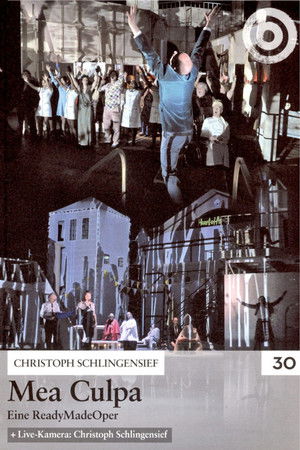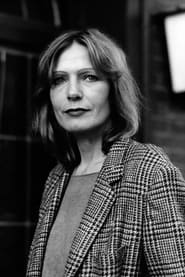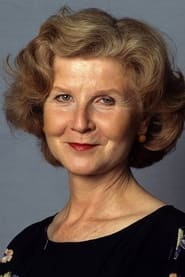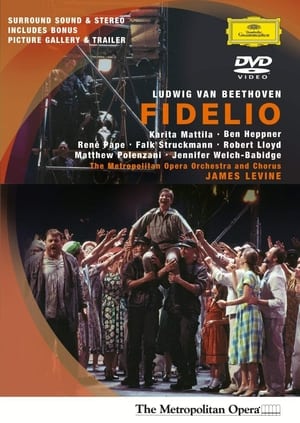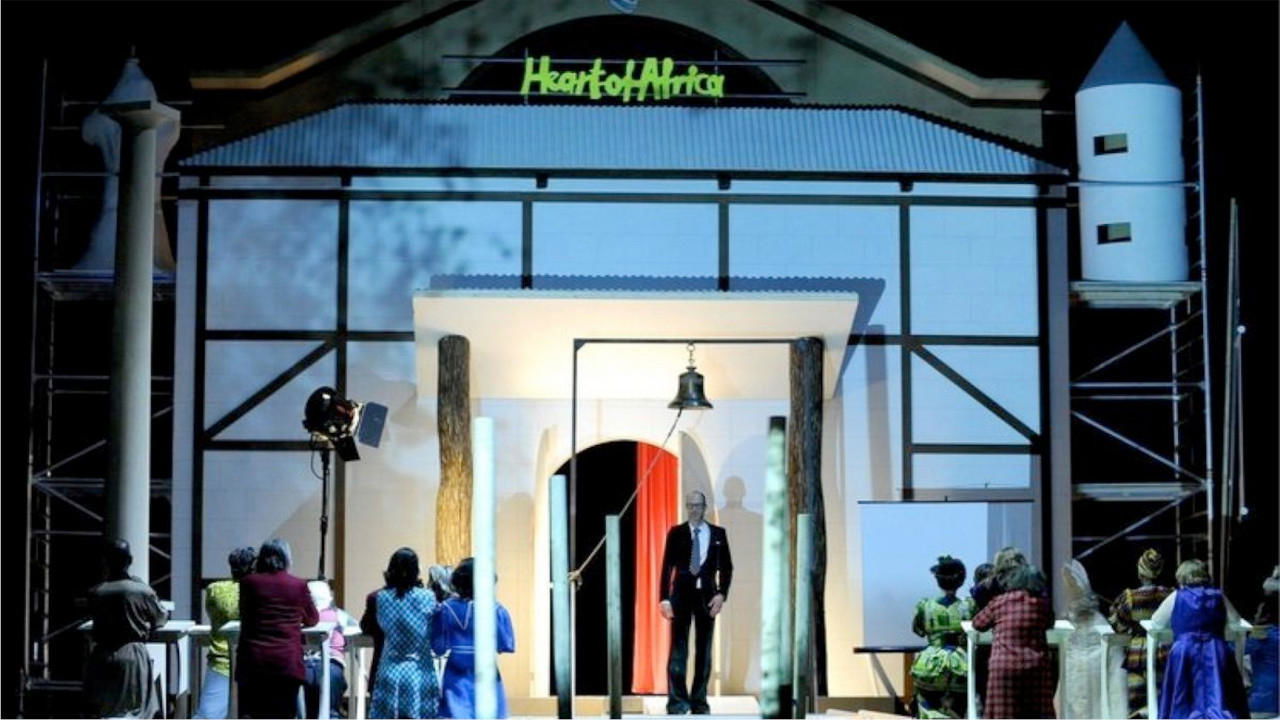
Mea Culpa – A ReadyMadeOpera(2009)
In Mea Culpa, Christoph Schlingensief blurs a delicate line: he ignores the threshold that separates the healthy from the sick. By making his cancer the subject of an opera, premiering on the largest German-speaking theater, he is putting the art district under pressure: a wonderful institution like the Burgtheater must use its artistic resources lavishly to reveal the entire "truth" about us humans. At the end of the day, when the scenery on Janina Audick's revolving stage has finally come to rest, when Isolde's last Liebestad has been sung enchantingly beautifully by Elfriede Rezabek and indescribable jubilation breaks out, then Schlingensief is completely alone with his illness.
Movie: Mea Culpa – A ReadyMadeOpera
Top 10 Billed Cast
Video Trailer Mea Culpa – A ReadyMadeOpera
Similar Movies
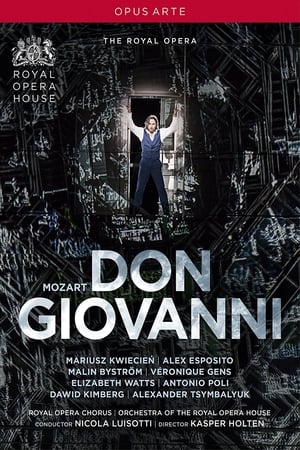 0.0
0.0Don Giovanni(en)
The impulsive and charismatic Don Giovanni travels through Europe seducing women, accompanied by his long-suffering servant Leporello. But when Don Giovanni commits murder, he unleashes a dark power beyond his control. Kasper Holten’s production is rich in both colourful comedy and exhilarating drama. Set designs by Es Devlin (Les Troyens) and costume designs by Anja Vang Kragh (Stella McCartney, John Galliano for Christian Dior), with video projections by Luke Halls and choreography by Signe Fabricius, portray the visually entrancing world of Don Giovanni. At the heart of the production are the beauty and invention of Mozart’s dazzling score, which ranges from gorgeous arias and dramatic duets to the brilliant layering of dance melodies that bring Act I to a virtuoso close.
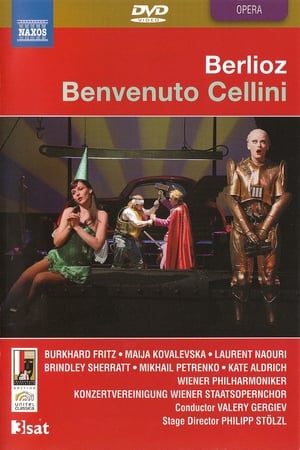 7.0
7.0Benvenuto Cellini(fr)
Live performance from Salzburg Festival Opera, August 2007. The story tells of Cellini's love for Teresa, daughter of the Papal Treasurer Balducci. His rival, the Papal Sculptor Fieramosca, overhears Cellini plotting to run away with Teresa during the carnival.
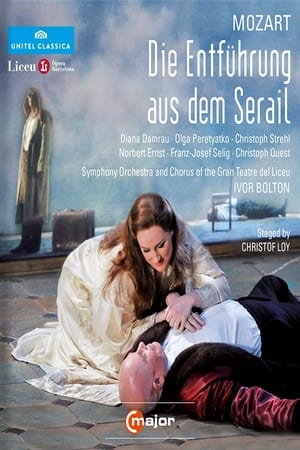 0.0
0.0Mozart: Die Entführung aus dem Serail(de)
The prestigious Gran Teatre del Liceu from Barcelona presents Mozart's beloved opera in an elegant, dramatic twist with a sparkling cast of world-class stars, led by coloratura soprano Diana Damrau as Constance and rising star Olga Peretyatko as Blonda. Director Christophe Loy has created a thought-provoking and surprisingly original script in which both Constance and Blonda feel respect, admiration and even deep love for their captors. As a result of this tantalizing, torturous approach, traditional norms and concepts of good and evil were turned upside down.
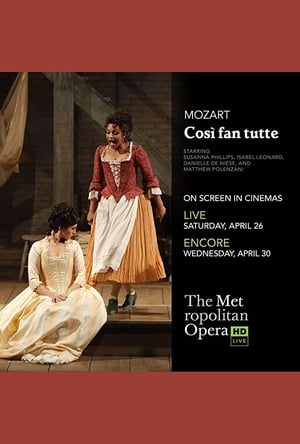 0.0
0.0The Metropolitan Opera: Così Fan Tutte(en)
Met Music director James Levine conducts a cast of youthful stars in Mozart’s sophisticated comedy about testing the ties of love. Susanna Phillips and Isabel Leonard are the sisters Fiordiligi and Dorabella, who are led to believe their fiancés have gone off to war. Matthew Polenzani and Rodion Pogossov are Ferrando and Guglielmo, the lovers who return in disguise to test their girls' fidelity. Danielle de Niese sings the scheming maid Despina and Maurizio Muraro is Don Alfonso, the philosopher and mastermind pulling the strings.
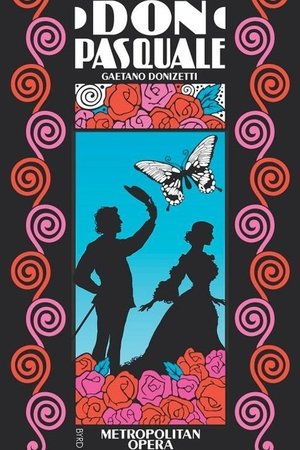 0.0
0.0Don Pasquale(it)
This John Dexter production, designed by Desmond Heeley, was a parting gift to the great American soprano Beverly Sills, who bid farewell to the Met as Norina, the smart young widow at the center of Donizetti’s comedy. The sensational Alfredo Kraus sings her beloved Ernesto. Håkan Hagegård, in his Met debut role and season, is Dr. Malatesta, the man who helps the young couple trick the crusty old bachelor of the title (Gabriel Bacquier at his comical best) into a fake marriage. This being a Donizetti comedy, it all turns out perfectly well at the end—and getting there is pure operatic fun.
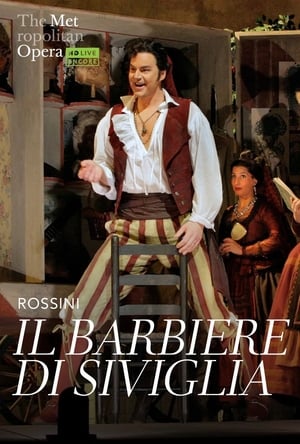 9.0
9.0Rossini: Il Barbiere di Siviglia(en)
Audiences went wild for Bartlett Sher’s dynamic production, which found fresh and surprising ways to bring Rossini’s effervescent comedy closer to them than ever before. The stellar cast leapt to the challenge with irresistible energy and bravura vocalism. Juan Diego Flórez is Count Almaviva, who fires off showstopping coloratura as he woos Joyce DiDonato’s spirited Rosina—with assistance from Peter Mattei as the one and only Figaro, Seville’s beloved barber and man-about-town.
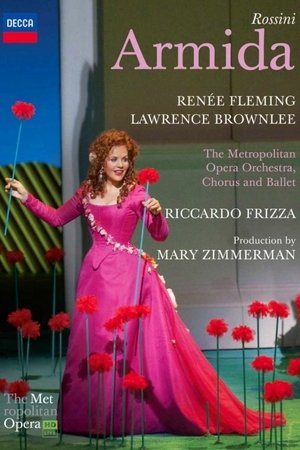 0.0
0.0Rossini: Armida(it)
It is a rare opera indeed that calls for one soprano diva and no fewer than six tenors. Mary Zimmerman’s fanciful production of Rossini’s drama, designed by Richard Hudson and with choreography by Graciela Daniele, provides the perfect setting for superstar Renée Fleming’s captivating performance of the title role. A beautiful but evil sorceress in the times of the Crusades, Armida sets out to regain the love of the Frankish knight Rinaldo (Lawrence Brownlee) by putting her magical spells on him. She at first succeeds to draw him into her web of sorcery, but ultimately divine intervention—and his fellow soldiers—free Rinaldo from his enchantment—much to the vengeful fury of Armida and her demons.
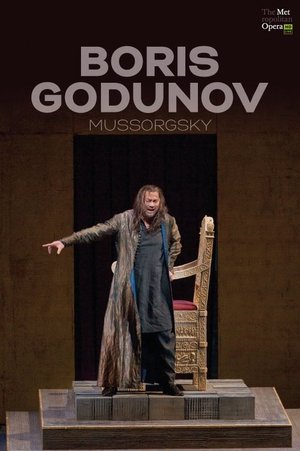 0.0
0.0The Metropolitan Opera: Boris Godunov(en)
Stephen Wadsworth’s production of Mussorgsky’s epic masterpiece brilliantly captures the suffering and ambition of the Russian people at a critical time in their nation’s history. René Pape is riveting as the Tsar of the title, giving a commanding and charismatic performance of one of the greatest bass roles in the repertoire—his Boris is dominating, tortured, flawed and utterly unforgettable. The extraordinary cast and the Met Orchestra and Chorus are led by Russian maestro Valery Gergiev, the foremost Mussorgsky interpreter of our time.
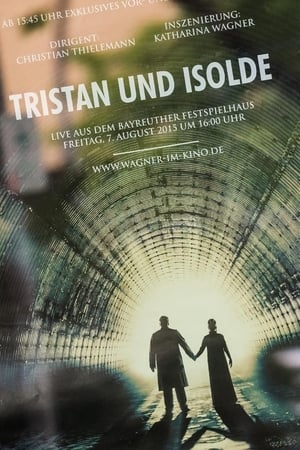 0.0
0.0Tristan Und Isolde(de)
Christian Thielemann conducts the Bayreuth Festival Orchestra in this production of Wagner's opera recorded in 2015. Starring Stephen Gould as Tristan and Evelyn Herlitzius as Isolde, the cast also includes Georg Zeppenfeld, Iain Paterson, Raimund Nolte and Christa Mayer.
 3.5
3.5Soho Conspiracy(en)
The plans of a publicity agent to put on a charity concert are nearly wrecked by a lawyer who wants to take over a restaurant, but the situation is saved by local co-operation.
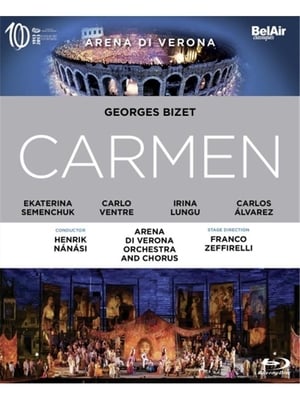 0.0
0.0Carmen (Arena di Verona)(fr)
High Definition recording June 2014, Arena di Verona. This opulent production was directed by Franco Zeffirelli and sung by an international cast of excellent singers: Russian mezzo-soprano Ekaterina Semenchuk, soprano Irina Lungu, tenor Carlo Ventre and Carlos Alvarez. The famous opera is staged as a colourful feast for the eyes, true to its source and convincingly acted by soloists, chorus and ballet alike. Conducted by Henrik Nánási it is a gloriously sung musical experience.
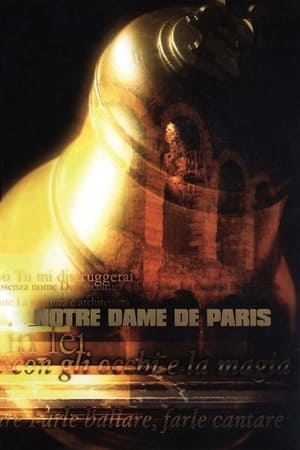 9.5
9.5Notre Dame de Paris - Live Arena di Verona(it)
Notre Dame de Paris tells the story of Quasimodo, the hunchbacked bell-ringer of the cathedral of Notre-Dame and of his impossible and tragic love for Esmeralda, a beautiful gypsy. A love condemned by injustice and hypocrisy. Quasimodo forced by his ugliness to look at the world from the top of a tower one day he falls madly in love with Esmeralda who sees dancing and singing on the square in front of the cathedral. But Esmeralda is in love with Febo, the handsome captain of the King's guards. Febo is fiancé of Fiordaliso, a young and rich bourgeois, but the exotic and sensual beauty of the gypsy does not leave indifferent the man who immediately falls in love with her. Even Frollo, the archdeacon of the cathedral, is attracted by the gypsy and spying on the moves of the two lovers in a raptus of jealousy and repressed carnal desire to get rid of the rival stabbing Febo behind.
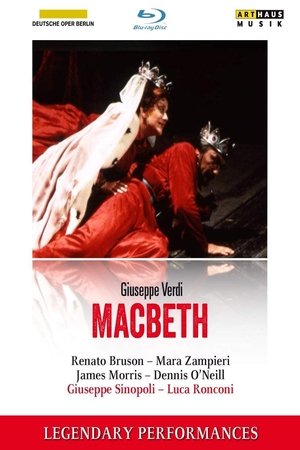 7.0
7.0Verdi: Macbeth(en)
Macbeth" was Giuseppe Verdi's first attempt at music drama and also the first manifestation of his profound love for Shakespeare's work. Verdi took great pains with this opera, displaying special enthusiasm for it as he concentrated on the main characters of Lady Macbeth, Macbeth and the witches. This recording of Luca Ronconi's production is conducted by Giuseppe Sinopoli, who brings fresh color to Verdi's score. The cast, headed by Renato Bruson and Mara Zampieri, are strongly supported by a fine-toned and adaptable chorus who ably meet the demands of Verdi's great "chorus opera.
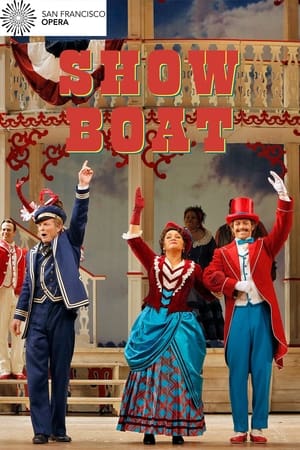 0.0
0.0Show Boat(en)
Hammerstein and Kern’s Show Boat is a true classic of American musical theater - a tale of life on the Mississippi from the 1880s to the 1920s is both a poignant love story and a powerful reminder of the bitter legacy of racism. The exuberant production from the San Francisco Opera features songbook classics such as “Ol’ Man River” and “Can’t Help Lovin’ Dat Man”.
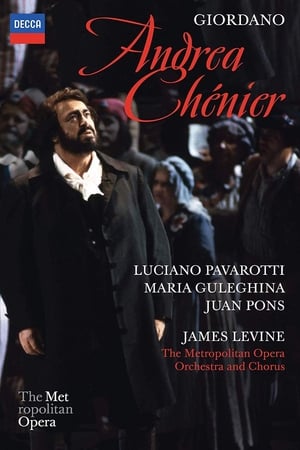 0.0
0.0Giordano: Andrea Chénier(it)
This live from the Met telecast from October 1996 of Giordano’s infrequently performed verismo gem is an absolute pleasure to watch and listen to and I highly recommend it. Nicholas Joel’s production is extremely elegant while at the same time being simple and uncluttered. Act I, for example, is dominated by an enormous gilt-framed mirror precariously tilted. I assume that it is a metaphor for the imminent downfall of the decadent aristocracy at the party given by the Contessa di Coigny. The costumes designs by Hubert Monloup are terrific. The prerevolutionary costumes in Act I are simply stunning each one individually tailored for the choristers and major performers.
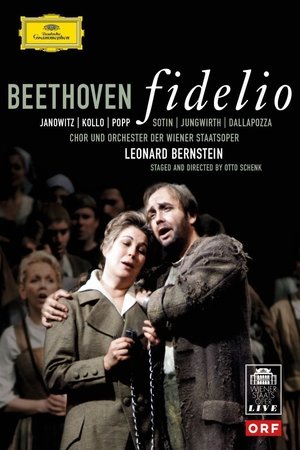 10.0
10.0Beethoven Fidelio(de)
This production is a gala affair; the sets are traditional (evocative of 18th-19th century Spain); the lighting is bright, so colors are good and one can see all of the action. Singers are generally well chosen and perform admirably. However, at this point, slight reservations creep in; although Janowitz (Fidelio/Leonore) and Kollo (Florestan) look "good" and act well, the singing parts tax them a bit when pushed to the limit. Most of the time that doesn't matter, and an argument can be made that a little vocal strain is in character with their dire plight. Ideally, for me, Vickers as Florestan would have added extra vocal heft and more sensitive acting than Kollo.
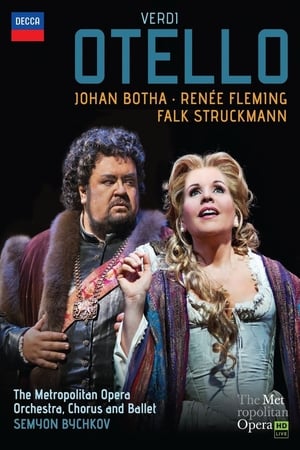 0.0
0.0The Metropolitan Opera: Otello(en)
In Verdi’s retelling of Shakespeare’s towering tragedy, Renée Fleming gives a captivating performance as the innocent Desdemona, a role long considered one of her calling cards. Johan Botha as the title hero delivers an imposing portrayal of a proud warrior brought down by jealousy, and Falk Struckmann is thrilling as the villainous Iago. James Morris sings Lodovico. Elijah Moshinsky’s production is conducted by Semyon Bychkov.
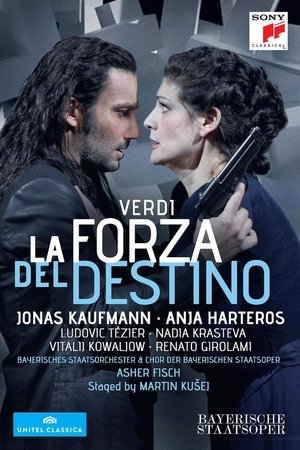 0.0
0.0Verdi La Forza del Destino(it)
This performance of 2014 can be considered as a reference on account of the quality of the vocal material involved and because the daring staging of Austrian Martin Kušej is rich in meaning within the context of the global challenges of today. He proposes a reflection on war, on vengeance and also on the mark of guilt which ends with the joie de vivre and the expansion of passions. In the intimacy of Calatrava, his is a post-Bauhaus picture of a Fascist neatness which then contrasts with the chaos of battles, the abyss of misery and the sexual stampede after triumph or failure. In this context, religion, instead of being a consolation is both an escape and the tomb of humanity; the chapel wherein Leonora hides is made out of huge crosses and in one of them, just for a moment, Don Álvaro seems crucified by his fate.
